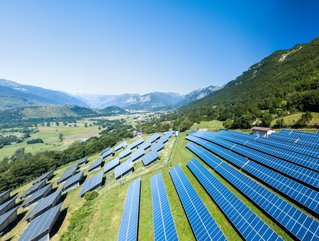Accelerate and incentivise renewable energy says EFET

The recent price escalation and prospect of a supply crisis precipitated by the Russian invasion of Ukraine present a unique opportunity to accelerate and incentivise the take-up of renewable and low carbon technologies and to further diversify sources of European energy supplies, according to the European Federation of Energy Traders (EFET).
Co-operation between Member States and Brussels must be enhanced, recognising that adverse consequences of unwarranted interventions in the operation of wholesale energy or carbon markets will never remain just national, it states.
The European Commission is currently consulting on the Hydrogen and Gas Markets Decarbonisation Package, ETS reforms are proposed with strengthening and expansion being planned, and the rest of the Fit for 55 package is making its way through the legislative process. In parallel, ACER is investigating electricity markets and ESMA investigating carbon markets.
ETEF calls on the EU to develop a coordinated policy response across three time horizons.
Short term energy response
A coordinated, pan-European response to managing gas security of supply, including via LNG and storage, is needed, and it will need to extend beyond the EU27. Alongside help to ensure the most vulnerable consumers can continue to afford their energy, time-limited policies to support the energy sector in times of high prices and high levels of market volatility are required.
Short to medium term energy response
There is a need to ensure the security and diversity of energy supply, and coordination of risk preparedness at a pan-European level. This means continuing to coordinate gas security of supply measures, including developing market-based methods of ensuring sufficient gas is in storage, while still trusting the wholesale gas market to optimise demand and supply. It also means prioritising energy efficiency, ensuring demand response can make the maximum possible contribution and encouraging investment in alternative sources of gas supply, renewable energy and in flexible sources of energy.
Medium to long term energy response
Europe has make sure it stays on track to meet net-zero goals, by continuing to decarbonise not only the energy sector, but all other sectors. Achieving this requires very large volumes of investment. The attractive investment environment needed for this will rely on strong and liquid energy and carbon markets.
Alcemi and CIP strike UK energy storage deal
Yesterday Alcemi and Copenhagen Infrastructure Partners (CIP) struck a partnership for the development, construction and operation of a 4GW portfolio of energy storage assets deployed across the UK, supporting the integration of renewable energy capacity and the transition to net zero by 2050.
The projects, currently in late-stage development, have planned energy storage capacities of between 300MW and 500MW each, with a storage duration of up to four hours.
The global renewable energy market is expected to grow by 1581.08GW between 2021 and 2026, progressing at a CAGR of 8.72% during the forecast period, according to Technavio. The market is characterised by the presence of many regional and international players offering differentiated products and vendors are adopting various organic and inorganic growth strategies to gain a competitive edge.
Urgent situation demands solar energy ramp up
The EFET's calls echo those of Walburga Hemetsberger, CEO of SolarPower Europe. Speaking at a recent meeting of solar industry stakeholders in Brussels, he said Europe must urgently accelerate the renewable energy transition to tackle the climate crisis, and to decrease dependence on energy imports. According to its pre-crisis scenario, 30GW of solar will be installed by the end of 2022.
"The solar industry stands ready to increase these figures, given the urgency. To underpin the energy transition, we must rapidly ensure optimum conditions for European domestic PV manufacturing. This means unlocking investments to rapidly scale up industry and decisive industrial strategy that supports manufacturers," she said.
Diego Pavia, CEO of EIT InnoEnergy, calls on the industry to go fast and be bold.
"After one year, the European Solar Initiative is ramping up, with three GW-scale manufacturing projects in the making in the framework of the Business Investment Platform, and an industrially ambitious contribution to the EU solar strategy with the goal to create the competitive business environment needed to reshore the PV industry.
"I am confident that the EU, the industry and financial institutions, working hand in hand, will achieve the target of producing 30GW of PV, from ingots to modules, in the EU by 2025, making the EU resilient and a global leader for sustainable PV technologies."






